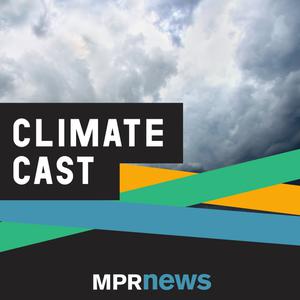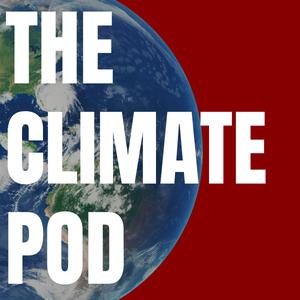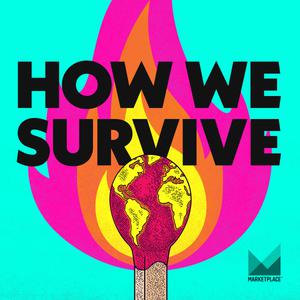
Climate Cast
Minnesota Public Radio
MPR News meteorologist Paul Huttner with the latest research on our changing climate.
- 4 minutes 11 secondsDisasters in warm-weather states spur climate migration to Minnesota
For some living in the warmer parts of the U.S., extreme weather tied to climate change is enough for them to consider cooler, safer climates.
No, Minnesota is not immune from the effects of climate change. But one Minnesota realtor says the state’s northern location is appealing appealing to her clientele from southern U.S.
“When you’re talking to people that are coming from all over the place, they do mention [Minnesota is] a more livable lifestyle that makes them feel safer,” said Mary Schumann, a realtor with Keller Williams Realty.
Schumann talked with MPR meteorologist Paul Huttner about the role climate change is having in people’s decision to move north.
To hear the full conversation, click play on the audio player above or subscribe to the Climate Cast podcast.
18 January 2025, 12:47 am - 4 minutes 15 secondsAs Earth sets temperature record, expert says solutions to ‘dangerous climate change’ exist
The planet has warmed past the 1.5 degrees Celsius pre-industrial normal temperature.
Final confirmation on 2024 being the hottest year on record is expected from NOAA and the European Union, but the effects of climate change on a warming planet is being felt from wild fires in California to the snowless winters in Minnesota.
“We’re certainly seeing a lot of dangerous climate change now,” said Jeff Masters with the Yale Climate Connection. “Winters have been the most dramatically affected season of all the seasons. They’re so much warmer now, less ice, less snow.”
But there are solutions, he added. “It’s the clean energy revolution.”
To hear the full conversation with Jeff Masters and MPR meteorologist Paul Huttner, click play on the audio player above or subscribe to the Climate Cast podcast.
9 January 2025, 10:10 pm - 4 minutes 3 secondsExtreme weather events push up insurance rates for Minnesotans
Homeowner and auto insurance rates are rising fast in Minnesota.
One policy comparison site, Insurify, shows Minnesota’s auto insurance rates had the highest year-over-year increase in the nation.
Climbing insurance rates have plagued Minnesotans in recent years, and one of the leading factors to the rise in premiums is extreme weather events.
“More water vapor that’s in our air, that then turns into things that land on our house — whether it's hail or rain — make bigger claims,” said Grace Arnold, who leads the Minnesota Department of Commerce.
“The best thing is to be prepared. That means: Have conversations with your insurance agents. Really shop around. And make sure that you’re thinking about your preparation for when we do have these big storms that are as a result of climate change.”
To hear the full conversation with Commerce commissioner Grace Arnold and MPR meteorologist Paul Huttner, click play on the audio player above or subscribe to the Climate Cast podcast.
3 January 2025, 1:05 am - 4 minutes 27 secondsTrump’s plan to repeal EV tax credit could hurt U.S. auto market
President-elect Donald Trump has promised to at least partially repeal the Inflation Reduction Act of 2022, and some analysts say it could end up helping China more than the United States.
“If you take away the incentives for people to buy the stuff that American manufacturers are making, that weakens the case for investing in American manufacturing,” said Canary Media’s Jeff St. John, who wrote about how killing the EV tax credit could impact an electrified future for the U.S.
St. John said the tax credit is a major incentive for car buyers, while also incentivizing automakers and battery manufacturers.
“Those investments are making a difference in the lives and jobs and economic development to move forward,” he said. “Those are all things that are tied up with the $7,500 per EV tax credit and it's a little bit hard to know what will happen if we untangle that.”
To hear the full conversation with St. John and MPR meteorologist Paul Huttner, click play on the audio player above or subscribe to the Climate Cast podcast.
26 December 2024, 9:54 pm - 4 minutes 24 secondsThe reason for warmer Minnesota winters: Less snow
Hotter summers and scorching temperatures might be a go-to thought when you think of climate change, but most of Minnesota’s warming is a winter phenomenon.
Pete Boulay of the Minnesota State Climatology Office said our warming winters can be credited to a lack of snowfall.
“We’re missing the snow pack,” said Boulay. “We’ve seen over the years, deep snow cover has gone down across many places in the state.”
That means winters in Minnesota are warming faster than summers are.Boulay talked with MPR meteorologist Paul Huttner about the warming trends and the impacts it could have on the state’s winter activities and outings.
To hear the full conversation, click play on the audio player above or subscribe to the Climate Cast podcast.
20 December 2024, 10:08 pm - 4 minutes 47 secondsAs companies build new data centers across Minnesota, some worry about their energy use
New data centers are popping up across the country — and companies are eyeing Minnesota as a potential building site due to its cooler climate.
But advocates within the state worry the extra demand from these large buildings could push the state to extend its use of fossil fuels at a time when Minnesota is trying to go carbon-free.
MPR News correspondent Kirsti Marohn has been following the story of a Colorado-based company’s proposed $5 billion data center in Farmington, Minnesota, as part of MPR’s Getting to Green series.
She spoke with MPR Chief Meteorologist Paul Huttner about growing opposition from residents in the rural town.
18 December 2024, 5:50 pm - 4 minutes 28 secondsTrump’s cabinet picks could reshape U.S. climate policy
President-elect Donald Trump is making cabinet choices that will likely impact U.S. climate policy. Observers of the picks point out ties to the fossil fuel industry.
Kiley Price with Inside Climate News spoke to MPR News chief meteorologist Paul Huttner about the picks and what it could mean for the future of climate policy.
To hear the full conversation, click play on the audio player above or subscribe to the Climate Cast podcast.
6 December 2024, 9:45 pm - 4 minutes 39 secondsXcel Energy asks for a 13 percent rate increase to fund infrastructure investments
From data centers to growth — electricity demand in Minnesota is rising.
That’s led Xcel Energy to request a 13 percent rate increase over the next two years and increase capital spending by $11 billion.
Walker Orenstein, reporter at the Minnesota Star Tribune, said the utility has plans to make major infrastructure investments.
15 November 2024, 8:15 pm - 4 minutes 45 secondsWarmer winters can mean more salt on Minnesota roads
While it’s unclear just how snowy this winter will be, NOAA data shows that Minnesota winters have warmed more than five degrees on average since 1970. Warmer winters may cause more freeze-thaw cycles and increased road salt use. State maintenance engineer Jed Falgren spoke to MPR News chief meteorologist Paul Huttner about what MnDOT is doing to maximize road safety in a changing climate.
31 October 2024, 9:55 pm - 3 minutes 47 secondsClimate Cast: Weak La Niña may mean snowy winter is on deck
Last winter was the warmest on record in Minnesota — a perfect non-storm of conditions that included a strong El Niño combined with warming climate trends. But this year will be different thanks to a weak La Niña developing in the Pacific, said Kenny Blumenfeld, who tracks Minnesota's climate trends with the Minnesota State Climatologist office in St. Paul.
“People are going to love or hate this,” Blumenfeld said. “Our all-time record and seasonal snowfall was during a La Niña winter. And number three, which we just experienced in the 2022-’23 winter, that was 90.3 inches. That was a La Niña, too. You do tend to get a bit more snow, even in a weak La Niña compared to an El Niño type winter.”
The warming of the atmosphere plays a role in extra-snowy winters, Blumenfeld told MPR News chief meteorologist Paul Huttner. ”The warming of the planet obviously puts more water into the atmosphere, and that's one of the reasons that we're seeing the increased snowfall during the winter time.”
Click on the audio player above to hear the whole conversation.
28 October 2024, 7:18 pm - 4 minutes 21 secondsGrants help Minnesota farmers deal with extreme weather
Minnesota is experiencing its fourth straight year of flash drought — and farmers are feeling the effects in their fields.
“Farmers and ranchers face unique challenges in a changing climate and experience climate related stress,” said Noah Fish, an agricultural reporter for Agweek.
“It’s not only their operations that are undergoing this change, but it’s emotional stress; these are farmers that are the ones out there working every day in these conditions.”
But grants offer relief, Fish said. The state of Minnesota is using federal grants to help farmers adapt to expanding droughts and a changing climates. Fish joined MPR News meteorologist Paul Huttner to talk about the kind of funding that is available to farmers and how it is helping.
To hear the full conversation, click play on the audio player above or subscribe to the Climate Cast podcast.
19 October 2024, 12:12 am - More Episodes? Get the App
Your feedback is valuable to us. Should you encounter any bugs, glitches, lack of functionality or other problems, please email us on [email protected] or join Moon.FM Telegram Group where you can talk directly to the dev team who are happy to answer any queries.
 The NPR Politics Podcast
The NPR Politics Podcast
 The Climate Pod
The Climate Pod
 How We Survive
How We Survive
 Climate One
Climate One
 MPR News Update
MPR News Update
 Living on Earth
Living on Earth